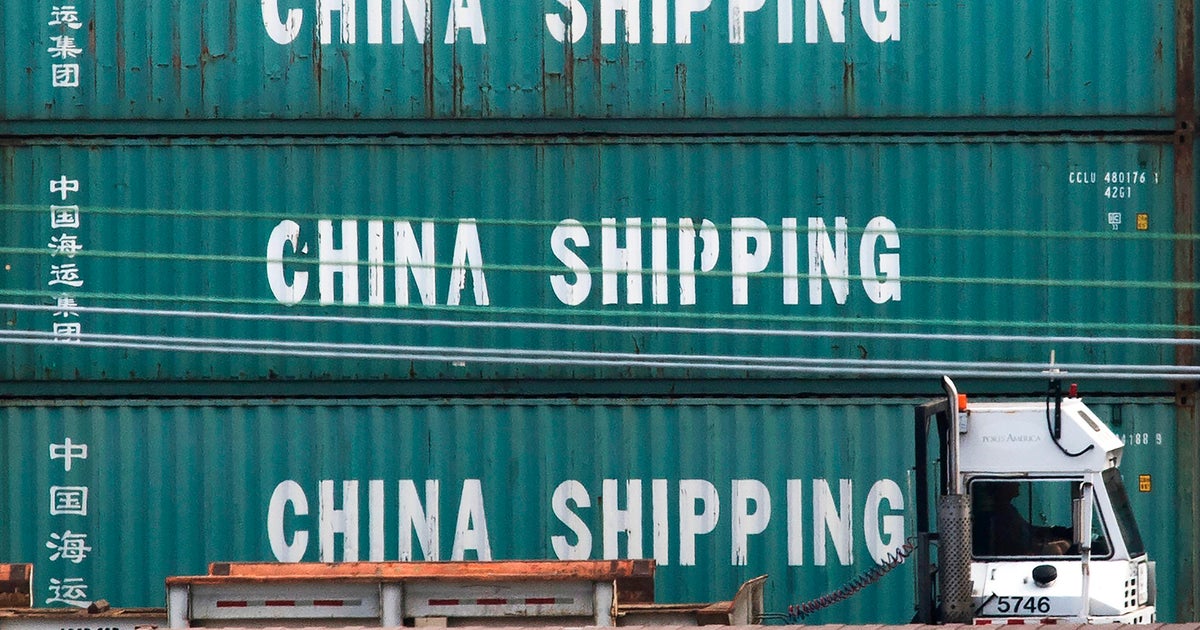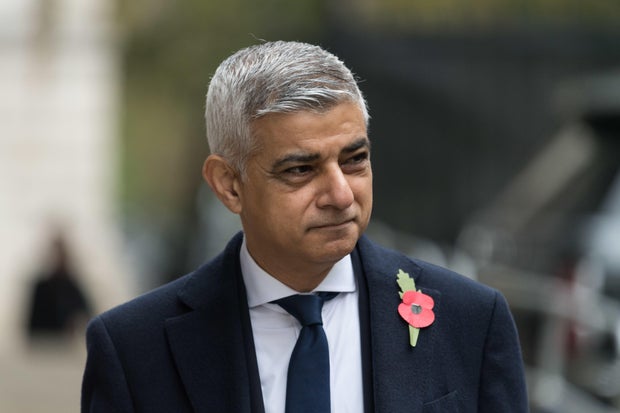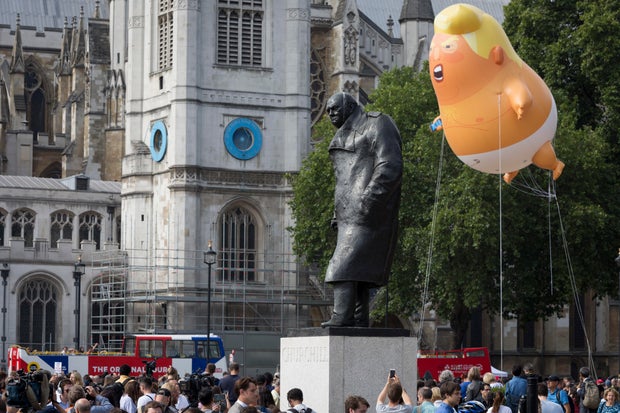CBS News
Why you should open a CD now that inflation is rising again

Getty Images
Savers concerned about dwindling interest rates on their money woke up to some welcome news on Wednesday with the latest inflation reading showing an uptick in October. While not a positive development for the wider economy, a rise in inflation could slow interest rate cuts, two of which have been issued in the last three months. Now at 2.6%, inflation jumped from September’s 2.4%, coming in higher after September’s Fed rate cut and ahead of the November cut issued last week. That’s still higher than the Federal Reserve’s target 2% goal.
Against this volatile backdrop, savers may want to take a final chance at exploiting this inflation cycle by opening a high-yield savings or certificate of deposit (CD) account. CDs, in particular, can still be advantageous now, despite the wider rate climate cooling this fall. Below, we’ll detail three reasons why it may be worth opening a CD now that inflation is rising again.
See how much more you could be earning on your money with a top CD here now.
Why you should open a CD now that inflation is rising again
Here are three reasons why you should consider opening a CD now that inflation just rose again:
Rates are still relatively high
Sure, CD interest rates have declined this year, with 1-year CD terms feeling the greatest effect. But that doesn’t mean that rates are at the 1% mark (or less) from 2020, either. Right now, you could still secure a 4.50% rate on a 1-year CD or 4.85% on a 6-month CD. Even 3-year CDs have rates over 4% currently. But, as has been shown for most of 2024, these rates are unlikely to remain this high for much longer. So you should consider acting now in case the next inflation reading shows a move back toward that 2% goal.
Get started with a top CD account online today.
Rates could fall if inflation drops again
If inflation falls again in November or December, interest rates on CDs could fall again – even without a formal Fed rate cut being issued. If inflation and other economic indicators lead lenders to expect more rate cuts, they may start reducing their CD offers in advance, as is the norm. And Wednesday’s inflation report didn’t come in so hot that it’s unrealistic to expect additional rate reductions ahead, even if they may not be issued exactly when previously expected. Understanding this, then, it makes sense to lock in a high CD rate while you still can.
You’ll protect your money until this inflation cycle ends
CD interest rates are high – and fixed. Unlike those on regular savings accounts and even high-yield savings accounts, this fixed-rate nature ensures accurate calculations so you’ll know exactly how much you stand to earn upon account maturity. And that locked rate will remain the same even if additional rate reductions are issued during the CD’s full term. So not only will you earn a high rate, but you’ll continue to earn that high rate and thus protect your money until this inflation cycle ends.
The bottom line
The window of opportunity to open a high-rate CD account is closing, but as this week’s inflation reading underlines, it hasn’t closed completely just yet. Rates on these accounts are still relatively high but they could fall again due to any number of economic indicators. But by opening a CD now, you’ll lock in an elevated rate and add a layer of protection against additional rate volatility to come. Just be sure to only deposit an amount of money that you can easily afford to part with for the full CD term or you’ll risk having to pay an early withdrawal penalty to regain access to your funds.
CBS News
London Mayor Sadiq Khan says Trump’s attacks on him are due to his ethnicity and religion

London Mayor Sadiq Khan has accused Donald Trump of repeatedly criticizing him because of his “ethnicity” and Muslim faith, comments likely to renew his long-running feud with the US president-elect.
The pair became embroiled in an extraordinary war of words during Trump’s first presidency, initially sparked by Khan speaking out against a U.S. travel ban on people from certain Muslim countries.
Wiktor Szymanowicz / Future Publishing via Getty Images
Trump then accused Khan — the first Muslim mayor of a Western capital when he was first elected in 2016 — of doing a “very bad job on terrorism” and called him a “stone cold loser” and “very dumb.”
The mayor in turn allowed an unflattering blimp of Trump dressed as a baby in a diaper to fly above protests in Parliament Square during his 2018 visit to Britain.
Richard Baker / In Pictures via Getty Images
Speaking on a podcast recorded before Trump’s re-election on November 5 and released earlier this week, Khan, a son of Pakistani immigrants to Britain, said he viewed the past targeting of him as “incredibly personal.”
“If I wasn’t this color skin, if I wasn’t a practicing Muslim, he wouldn’t have come for me,” he told the High Performance podcast, which interviews prominent people in different sectors.
“He’s come for me because of, let’s be frank, my ethnicity and my religion.”
Khan added that during this period he was “speaking out against somebody whose policies were sexist, homophobic, Islamophobic, racist” and that he has “a responsibility to speak out.”
His latest comments on Trump are in stark contrast to those of his colleagues in Britain’s Labour party, which swept to power in July.
Several Labour members of Parliament now in senior government posts, including Foreign Secretary David Lammy, were critical of Trump while they were in opposition during his first White House term.
In 2018, Lammy labeled him a “woman-hating, neo-Nazi sympathizing sociopath.” But Britain’s now-top diplomat last week dismissed the remarks as “old news.”
Meanwhile, Prime Minister Keir Starmer has appeared at pains to forge a positive relationship with the president-elect, promptly congratulating him on his “historic election victory.”
Starmer said their phone call was “very positive, very constructive” and the so-called special relationship between the U.K. and U.S. would “prosper” in Trump’s second term.
CBS News
LSU student arrested over alleged death threat vs. governor who wanted live tiger at game

Baton Rouge, La. — An LSU student has been arrested after, prosecutors say, he made an online threat to kill Louisiana Gov. Jeff Landry, who advocated for bringing a live tiger onto the field as part of a recent college football game.
Landry, a Republican, helped revive the school’s tradition of wheeling a caged Bengal tiger into the stadium before kickoff for the first time in nearly a decade. Animal rights activists protested outside the stadium.
Gerald Herbert / AP
An arrest affidavit says Jackson Pemberton, 21, told state police investigators on Tuesday that he was joking when he posted on social media “I am going to kill you jefflandry,” tagging the governor’s account on X, media outlets reported.
Pemberton told investigators he was “upset with the governor’s decision regarding the live tiger that was brought on the LSU football field this previous weekend,” the affidavit said.
Gerald Herbert / AP
Pemberton, of Baton Rouge, was booked into the East Baton Rouge Parish prison on a count of threatening a public official, media outlets reported. Jail records didn’t indicate whether he has an attorney or if bond had been set.
In a statement Wednesday, an LSU spokesperson said the university was aware of the student’s arrest.
“We take any behavior that threatens the safety of individuals or our community very seriously,” the statement reads. “LSU is committed to a respectful, responsible, and safe environment for all.”
CBS News
Can Trump impose tariffs without Congress? It’s complicated, according to experts.

President-elect Trump, who has said he thinks “tariff” is “the most beautiful word in the dictionary,” has proposed a variety of taxes on goods imported from other countries.
His aim is to deter American companies from relying on parts and goods from overseas, including from China, by making it more expensive for them to do so.
He’s also claimed that he doesn’t need Congress’ support to impose the tariffs he’s floated. The reality is more complicated, according to economists and foreign trade experts.
What has Trump proposed?
On the campaign trail, Trump proposed tariffs of between 60% and 100% on Chinese goods. He’s offered few additional details, however, such as whether the tariffs would apply to all goods, or just certain categories of products.
He’s also proposed a sweeping tariff policy including a universal tax of between 10% to 20% on all imports, and has promised reciprocal tariffs on any country that imposes tariffs on American-made goods.
Can Trump unilaterally impose tariffs?
Once he takes office, President-elect Trump has a few different pathways through which he could try to implement the types of tariffs he has proposed.
The U.S. Constitution gives Congress the authority to impose tariffs in Article 1, Section 8, which states that “The Congress shall have Power To lay and collect Taxes, Duties…To regulate Commerce with foreign Nations.” But Congress can also selectively delegate tariff-setting authority to the President, which it has done for decades.
Trump, in his first term as president from 2017-2021, made use of this presidential authority to increase tariffs: Duties paid on U.S. imports doubled from roughly $37 billion in 2015 to $74 billion in 2020, according to the Congressional Research Service.
“Looking at his previous four years in office, he seems to believe he has the authority to impose tariffs,” said Jake Colvin, president of the National Foreign Trade Council, a group dedicated to advocating for U.S. companies in international commerce. “If they decide on day one that they want to use executive authority to put tariffs on Chinese goods, they could probably go ahead and do that.”
Colvin added that it will be important for the incoming Trump administration to provide businesses with more specifics so that companies can plan accordingly. “A lot has been proposed in the course of the campaign, so it’s important for the administration to give a signal about the path it intends to pursue, for clarity and planning purposes for American businesses,” he said.
Presidential authority to impose tariffs
The president has authority to impose a range of trade restrictions on foreign nations, said Inu Manak, a trade policy fellow at the Council on Foreign Relations.
“It seems pretty clear that he would pursue tariffs soon after taking office. During his last term, tariffs were a tool of choice in the trade war against China and against allies, too. So I believe that is a strategy he’ll replicate in his next term,” Manak told CBS MoneyWatch.
Manak added that he would likely be able to do so without support from Congress. “The president has quite a bit of discretion to do what he wants,” she said.
Legal powers at Trump’s disposal include Section 301 of the Trade Act of 1974, under which the president may impose retaliatory tariffs when “an act policy, or practice of a foreign country … violates, or is inconsistent with, the provisions of, or otherwise denies benefits to the United States under, any trade agreement, or … is unjustifiable and burdens or restricts United States commerce.”
Trump has already relied on Section 301 to impose tariffs on China throughout 2018 and 2019, and he could, simply, expand upon existing tariff actions he’s already taken, according to Manak.
“That would require no action from Congress, because they are already in place,” she said.
In his previous term as president, he also made use of Section 232 of the Trade Expansion Act of 1962 to impose tariffs on steel and aluminum imports. It grants the president the authority to adjust imports, including by imposing tariffs, when they are found to be a threat to national security.
Threats to national security
There’s also the International Emergency Economic Powers Act (IEEPA), which hasn’t been used to restrict trade since President Nixon was in office, from 1969 until his resignation in 1974.
The act says “Any authority granted to the President by … this title may be exercised to deal with any unusual and extraordinary threat … to the national security, foreign policy, or economy of the United States, if the President declares a national emergency with respect to such threat.”
“The authorities granted to the President … may only be exercised to deal with an unusual and extraordinary threat with respect to which a national emergency …” it adds in part.
In other words, in order to use IEEPA to impose tariffs, Trump would have to declare a national emergency through an executive order, claiming that the U.S.’s trading partners pose an unusual and extraordinary threat.
Alan Wm. Wolff, former deputy director-general of the World Trade Organization and a distinguished visiting fellow at the Peterson Institute for International Economics (PIIE), is skeptical that Trump has the authority to impose sweeping tariffs under IEEPA.
“Can it be used against trade with all countries, our allies and friends in Europe and Asia, in the Americas, not to mention the poorest countries in Africa? That would simply be too large a power grab to have been within what Congress intended in this statute,” he wrote in a recent blog post.
Discrimination against U.S. commerce
Manak said that Section 338 of the Tariff Act of 1930 could also conceivably give the president the authority to unilaterally raise tariffs.
The rarely used act allows the president to impose duties of up to 50% of a product’s value, and is triggered when a president finds that a foreign country has imposed an unreasonable charge on, or discriminated against U.S. commerce.
Typically, though, the finding has to come from the U.S. International Trade Commission (ITC). “But the statute’s language is ambiguous in terms of what that would look like, and I would imagine he could pursue this without a final finding from ITC, or pursue it while a finding is being made,” she said.
Impact of tariffs on consumer prices
Some companies have already said they’re aiming to move production out of China to avoid Trump’s proposed tariffs.
Shoemaker Steve Madden, for example, says it plans to import fewer goods made in China to the U.S., and replace them with items made in other countries.
If imposed, the proposed tariffs on imports could lead to consumers losing between $46 billion and $78 billion in spending power each year on products including apparel, toys, furniture, household appliances, footwear and travel goods, according to the National Retail Federation.
By another estimate, a 20% general tariff on all imported goods, combined with a 60% tariff on goods imported from China, would cost the typical U.S. households more than $2,600 a year. If Trump imposes a 10% tariff across the board instead, that would cost families $1,700 more, according to PIIE.
More concrete data on what the cost will be on consumers may soon be available, as experts expect Trump’s proposed tariffs to be implemented rather quickly.
“We would imagine that within a few months of him taking office, we would see the first tranche of tariffs taking effect,” Manak said.







